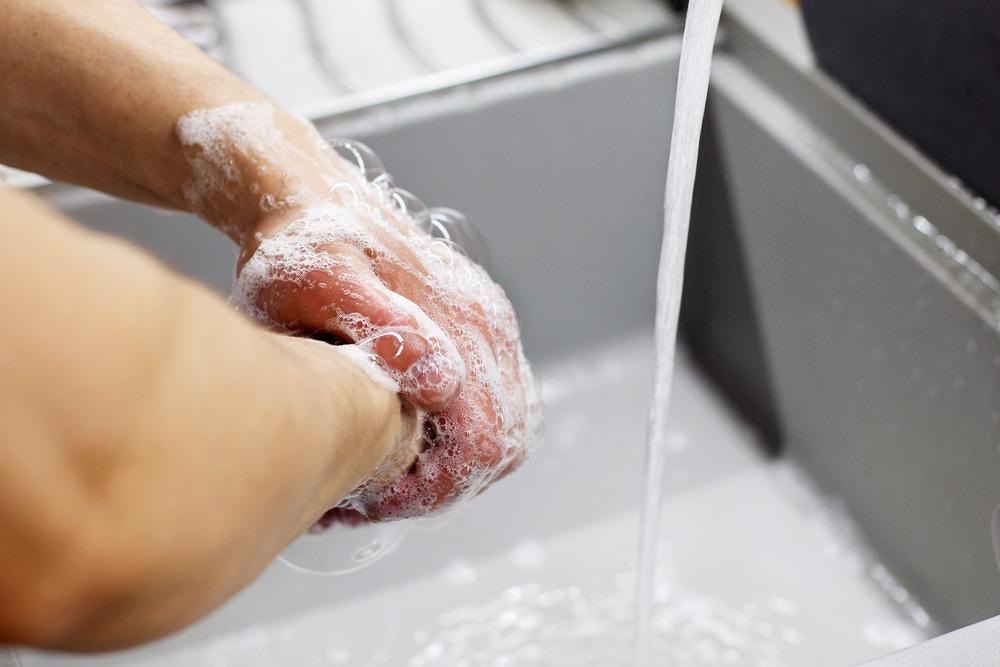Research has shown that many harmful diseases spread due to a lack of proper hand hygiene. Thereby, washing hands could effectively prevent the spread of infections. One can spread germs, i.e., harmful pathogenic microorganisms, by simply touching another person. Also, one can catch germs by touching a contaminated object or surfaces and, subsequently, touching their mouth, eyes, and nose.
Inappropriate hand hygiene significantly harms children around the world. According to a report, around 1.8 million children across the world, under the age of five years, die due to diarrheal diseases and pneumonia. One out of every three children who are infected with diarrhea, or one out of every five children who are affected with respiratory ailments (e.g., pneumonia), could be saved from catching the disease by washing hands properly with soap and water.
Even though many individuals around the world clean their hands with water frequently, very few use soaps while washing their hands. Several studies have indicated that soaps remove germs from hands more efficiently, compared to washing hands only with water.

Image Credit: stopabox/Shutterstock.com
How do Harmful Microbes Reach the Hand?
Microbes, e.g., Salmonella, E.coli O157, and norovirus, cause diarrhea, respiratory infection, and hands-foot-mouth diseases. These germs are often present in feces and can contaminate an individual’s hand during changing a diaper or using the toilet. It can also reach one’s hand while handling raw meat containing traces of animal excreta.
Additionally, germs can get onto hands just by touching a contaminated object. Unknowingly these germs can spread from one person to another with a mere touch or a handshake, and make a person ill.
Importance of Hand Hygiene and Disease Prevention
Germs enter a body via the nose, eyes, and mouth, and every person tends to touch their faces multiple times without even realizing it. Germs from unwashed hands might contaminate foods and drinks, and could be transferred to objects, like handrails, tabletops, or toys easily. Washing hands with soap removes germs from hands, which leads to a reduction in the rate of respiratory infections, eyes and skin ailments, and decreases the occurrence of diarrhea.
According to a report, raising awareness about the importance of handwashing in a community has significantly reduced diarrhea by 23-40%. Interestingly, this has also decreased diarrheal illness in people with weakened immune systems by 58%. Additionally, such awareness has led to a reduction in respiratory illness, e.g., common flu, in the general population by 16-21% and gastrointestinal illness in schoolchildren by 29-57%.
Proper hand hygiene has played an important role in preventing the further spread of severe acute respiratory syndrome coronavirus-2 (SARS-CoV-2), the causal agent of the ongoing coronavirus disease 2019 (COVID-19) pandemic. This virus has been characterized to be extremely contagious and, therefore, frequent washing of hands with soap and water and the use of alcohol-based hand sanitizers have been recommended to curb further transmission of the infection.
Handwashing and Antibiotic Resistance
Researchers have stated that proper handwashing helps battle the issue of an increase in antibiotic resistance. Studies have shown that antibiotics are prescribed unnecessarily for diseases such as common colds. Overuse of antibiotics causes antibiotic resistance, where antibiotics fail to kill a pathogen. Handwashing can prevent 20% of respiratory infections.
Reducing the number of these infections through proper hand hygiene would prevent the overuse of antibiotics, which is a key factor associated with antibiotic resistance around the world. Importantly, maintaining hand hygiene would prevent the transmission of germs that are already resistant to antibiotics, and are therefore difficult to cure.
How to Practice Proper Hand Hygiene to Prevent Infection Transmission?
It is important to wash hands frequently, particularly, after using toilets, changing nappies, eating, handling raw meat, and attending to sick children or adults. Additionally, hand washing has been recommended after handling rubbish, working in the garden, and tending animals. It is also important to wash hands after returning home from school, office, or other outside work.
One must avoid touching face with unwashed hands. It is important to cough or sneeze into a tissue and, subsequently, dispose of the used tissue and wash hands. In case when one does not have a tissue handy, it has been recommended to cough or sneeze into the elbow, as this part is less likely to contact other surfaces and, thereby, it could prevent spreading germs.
The proper way to wash hands is to lather up the soap to cover the entire hand and fingers and rub it for twenty seconds and rinse it off with warm water. It is important to remove any piece of jewelry and watches before washing hands. Some people suffer from skin irritation after using soaps. It is important to raise awareness that soaps with varied pH, i.e., neutral, slightly alkaline, or slightly acidic, and perfumes in soap cause irritation, therefore, changing a particular soap may reduce the problems of skin irritation.
Alcohol-based hand sanitizer is extremely effective against most pathogens (viruses and bacteria) that are prone to get transmitted via hands. However, it is not effective against gastroenteritis infection, which can be prevented by washing hands with soap and water. The use of hand wipes, pre-saturated with antibacterial solutions, can eliminate bacteria.

 Read Here: Importance of Hand Hygiene in Healthcare
Read Here: Importance of Hand Hygiene in Healthcare
Resources:
- Hand Washing: Reducing the Risk of Common Infections. (2022) Canadian Centre for Occupational Health & Safety. Online] Available at: https://www.ccohs.ca/oshanswers/diseases/washing_hands.html
- Handwashing - Why it's important. (2022) Victoria State Government. Online] Available at: https://www.betterhealth.vic.gov.au/health/conditionsandtreatments/handwashing-why-its-important
- Show Me the Science - Why Wash Your Hands? (2020) The Center for Disease Control and Prevention. [Online] Available at: https://www.cdc.gov/handwashing/why-handwashing.html
- Aziz, A.M. (2020) Hand hygiene and stopping the spread of COVID-19. Journal of Paramedic Practice. 12(6). https://doi.org/10.12968/jpar.2020.12.6.CPD1
Further Reading
Last Updated: Apr 14, 2022